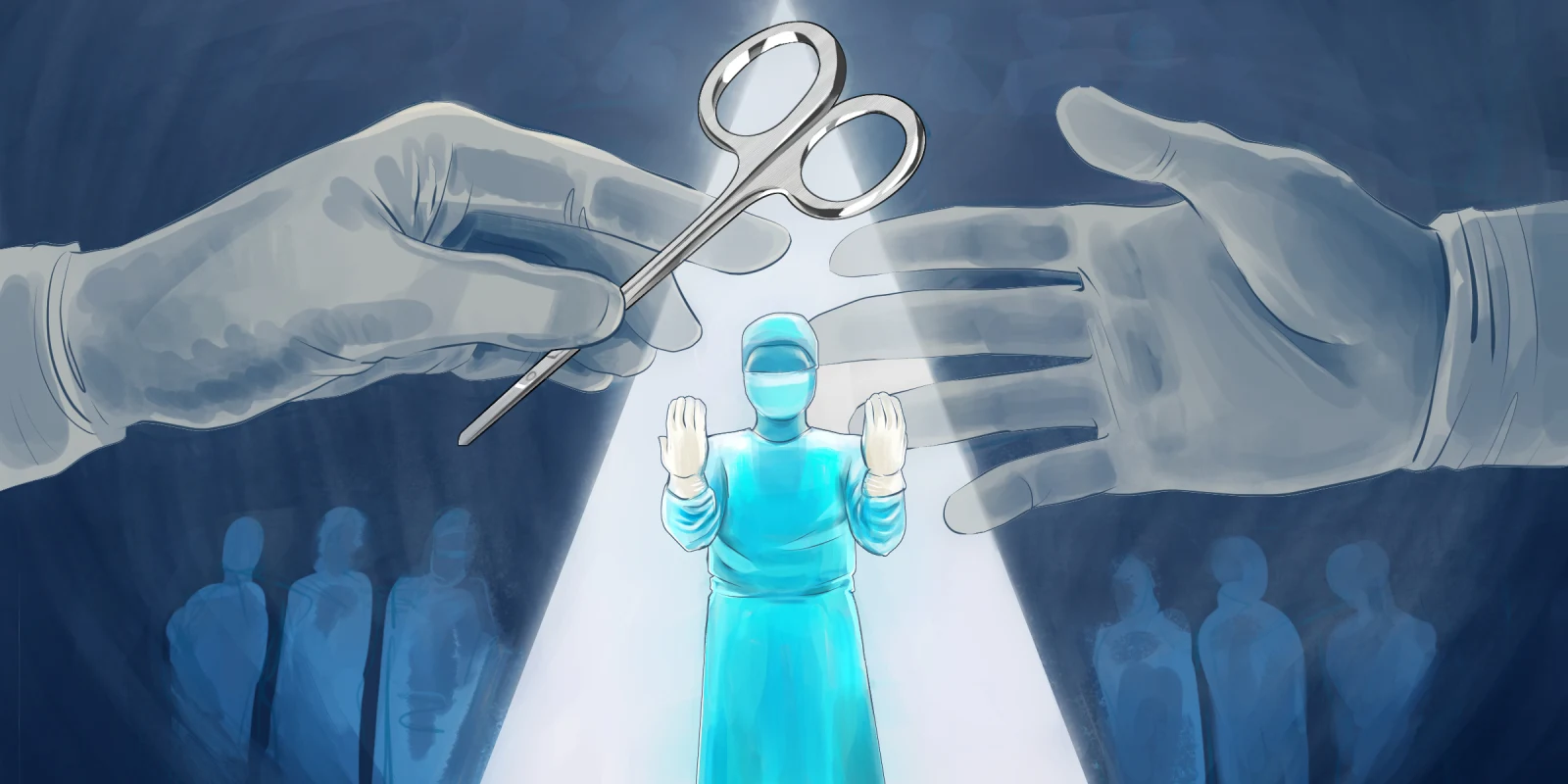The phone rang.
"Jon?"
"Hey Will, what's going on?"
"I have a 30-year-old female on the table for a lap chole. While working toward the critical view, I hit major bleeding. Blood splashed the camera. When I pulled it out to clean, blood was pumping out of the port. I converted to a right subcostal incision and packed it, but it's bad."
"Can you expose it, clamp it?"
"I can't isolate it. We're giving blood but supplies are low. She just lost pulses — let me call you back."
If you're a trauma surgeon, you've gotten a call like this or lived through it yourself.
The team at our satellite hospital managed to get her back, packed the abdomen tight, grabbed every available unit of blood, and placed her in an ambulance for the 30 minute ride through sleet to my Level 2 trauma center.
On my end, I mobilized resources fast: activated massive transfusion protocol, prepped an OR, and alerted the ER team in case she coded en route. Two scenarios played in my mind: 1) She coded in the ambulance — then we'd head to the ER for a resuscitative thoracotomy, clamp the aorta, and fight for a pulse. 2) She arrived with a pulse — we'd go straight to the OR.
She arrived alive, blood pressure 60/40. Blood products were waiting. We rushed her to the OR, maintained pressure on the bleeding site, and extended the incision for exposure. With a Bookwalter retractor in place and anesthesia balancing transfusion, we cautiously unpacked. A vessel was spurting. A right-angle clamp stopped it. Everyone exhaled.
With pressure stable, I removed the gallbladder. Now came the decisive moment: tie off the vessel. There might not be a second chance. I slid the prolene under the clamp, tied the knot, asked for the clamp to be released — success. Extra clips secured it. We performed a temporary abdominal closure and sent her to the ICU. The next day I closed her abdomen. When she woke, she recognized her family. Relief washed over everyone.
Later, I spoke with Will. The weight of such responsibility is hard to describe. Complications force surgeons to look deep within. I reminded him of words from my mentor, the most skilled surgeon I've ever known — efficient, precise, compassionate. Before I graduated, I asked him how he became so good. He looked at me with sad eyes and said: "If you can imagine a complication, it has happened to one of my patients."
The price of mastery in surgery is high. Complications and mistakes happen to all of us. What matters is honesty, learning, and striving to do better. I encouraged Will to "get back on the horse." That week, he successfully removed two gallbladders. For a brief time, this case was the talk of the hospital, the closest we trauma surgeons get to "15 minutes of fame."
About a month later, I evaluated a patient in the ED. He was in his 70s, had a coronary artery bypass grafting less than a year ago, then a stent for graft occlusion. He'd recently suffered cholecystitis, managed with a cholecystostomy tube. Surgery was deferred due to high risk. Now he presented with abdominal pain, deteriorating rapidly in the ED — lactate 7.7, tachycardic, hypotensive, peritonitis. A CT showed fluid in the right upper quadrant. I explained the dire situation to him and his son, then took him for an emergent laparotomy.
He was acidotic, on dual antiplatelets, already resuscitated with 5 liters of crystalloid. The source was possibly his gallbladder or his hepatic flexure. I resected the right colon and tried to resect the gallbladder. During the gallbladder removal, blood started pouring from the liver bed and multiple surfaces. We fought hard, but bleeding worsened. Blood poured from his NG tube. We packed tightly and aborted. He died in the ICU shortly after.
I knew I had made mistakes (just drained the gallbladder to avoid the raw surface?!). Hindsight tortured me. Speaking to the family gutted me. Just weeks before I'd been a hero; now I felt I wasn't enough. But again, my mentor's words returned: If you can imagine a complication, it has happened to one of my patients. That is the surgeon's reality. We must learn, endure, and do better.
Dr. Jonathan Eldor is a husband and father, trauma surgeon at Portsmouth Regional Hospital in New Hampshire, and host of "The Emergency Surgeon Podcast." He is also the author of the book "A Brief Guide for the Surgical Intern."
Illustration by April Brust







